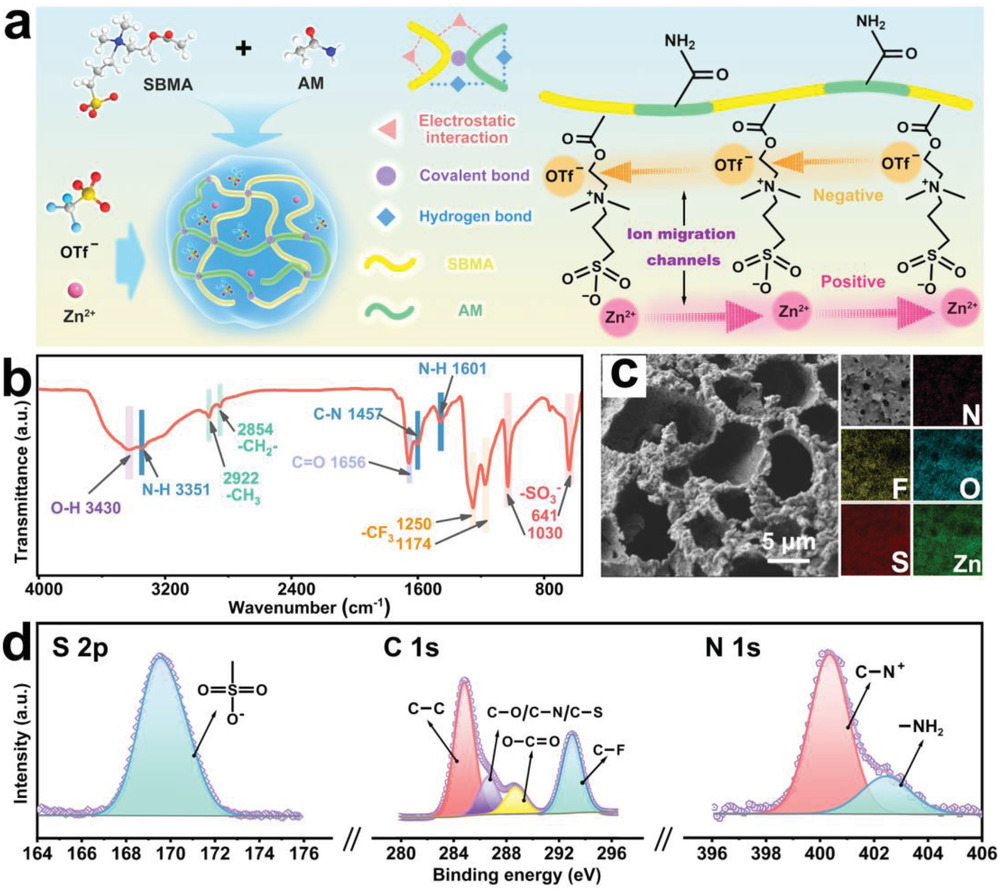W.T. Zhang, F.J. Guo*, H.Y. Mi*, Z.-S. Wu, C.C. Ji, C.C. Yang, J.S. Qiu*
Advanced Energy Materials, 2022, 2202219.
DOI: 10.1002/aenm.202202219 [PDF]

Despite impressive merits of complementary charge-storage mechanisms for aqueous Zn-ion hybrid micro-supercapacitors (ZHMSCs), it remains a challenge to solve dendrite and parasitic reactions issues of Zn anodes. Herein, a kinetics-boosted strategy of Zn2+transport and desolvation of hydrated Zn2+is proposed by engineering zwitterionic P(AM-co-SBMA) hydrogel electrolyte (PASHE) for highly reversible Zn plating/stripping. Mechanically robust and chemically anchored PASHE features zwitterionic groups for constructing ion migration channels and immobilizing water molecules, which accelerates Zn2+migration for an ultrahigh transfer number (0.84) and alleviates water-related parasitic reactions. Theoretical calculations combined with experimental results reveal that sulfobetaine sulfonate anions endow PASHE with improved desolvation kinetics and the ability to coordinate Zn2+flux and electric field distributions at the electrolyte–electrode interface. Thus, Zn anodes exhibit excellent electrochemical performance involving high average coulombic efficiency of 99.4% in Zn|PASHE|Cu cell as well as high cumulative capacity of 2000 mAh cm−2(20 mA cm−2, 1 mAh cm−2) and depth of discharge of 80.9% (20 mA cm−2, 10 mAh cm−2) in Zn|PASHE|Zn cells. Furthermore, ZHMSCs based on PASHE deliver excellent flexibility and cyclability for energy-storage applications. This work provides useful insights on hydrogel electrolyte engineering for developing high-performance Zn anodes and derived energy-storage devices.